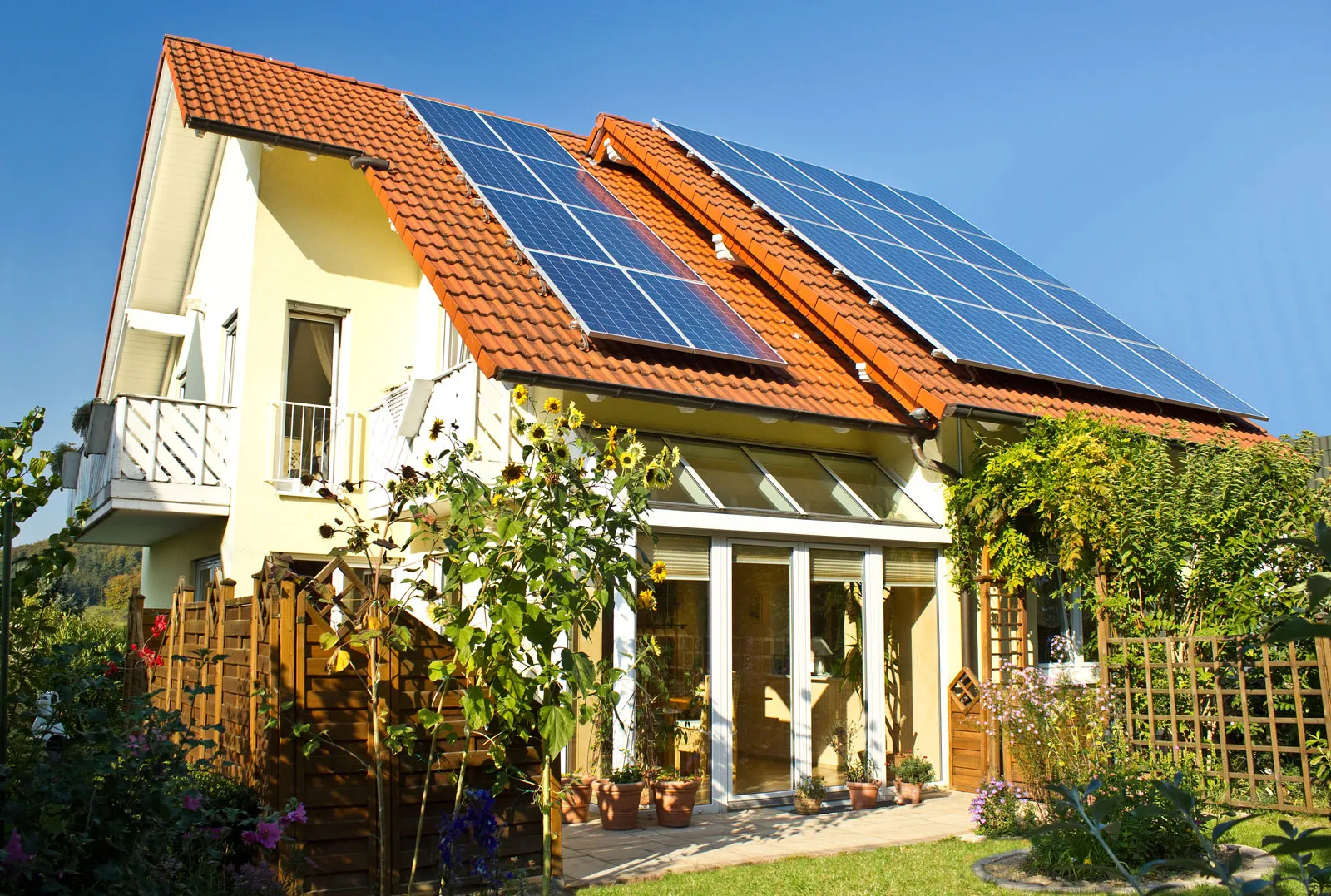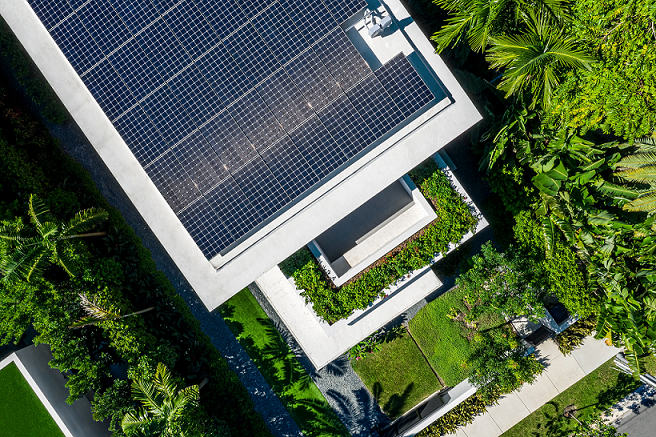
Introduction
The energy industry has undergone significant changes over the years, with traditional energy sources such as oil and coal being the primary sources of power for many decades. However, with the increasing need for sustainable and renewable energy sources, solar energy has become a more popular choice. Solar energy is harnessed through the use of solar panels, which convert the sun’s rays into electricity. This form of energy is not only clean but also cost-effective, making it an attractive option for businesses and homeowners looking to reduce their carbon footprint and save money. In this article, we will provide a comprehensive comparison of solar energy vs traditional energy sources, including the pros and cons of each and the cost of adoption.
Solar Energy vs Traditional Energy Sources: A Comprehensive Comparison
When comparing solar energy with traditional energy sources such as coal, oil, and natural gas, several key factors must be considered. These include the impact on the environment, availability, cost, and reliability. While traditional energy sources have been the primary source of power for decades, solar energy is becoming a more attractive option due to its sustainability and the decreasing cost of solar panel adoption.
The Pros and Cons of Solar Energy
Pros:
- Solar energy is a clean and sustainable form of energy that does not produce any harmful emissions.
- It is a renewable source of energy that is not dependent on finite resources.
- Solar panels are easy to install and require minimal maintenance.
- Solar energy can be used in remote locations where traditional energy sources are not available.
- The cost of solar panel adoption is decreasing, making it a more affordable option for businesses and homeowners.
Cons:
- Solar energy production is dependent on weather conditions, and its output can be impacted by cloud cover or shading.
- The cost of initial installation can be high, although this is offset by long-term savings on energy bills.
- The efficiency of solar panels decreases over time and may require replacement after 20-25 years.
- Solar panels require a large surface area to produce enough energy for larger commercial or industrial buildings.
The Pros and Cons of Traditional Energy Sources
Pros:
- Traditional energy sources such as coal, oil, and natural gas have a high energy density, making them efficient at producing large amounts of power.
- These energy sources have been used for decades and have well-established infrastructures for production, transportation, and distribution.
- Traditional energy sources are reliable and can provide a constant supply of energy regardless of weather conditions.
Cons:
- Traditional energy sources produce harmful emissions that contribute to air pollution, climate change, and environmental degradation.
- These energy sources are non-renewable and finite, meaning that their depletion is inevitable.
- The production of traditional energy sources requires extensive infrastructure, including drilling rigs, pipelines, and refineries, which can be costly and cause environmental damage.
- The cost of traditional energy sources is subject to market fluctuations, making it difficult to predict future costs.
What’s the Best Choice for Your Home or Business?
When deciding between solar energy and traditional energy sources for your home or business, there are several factors that you should consider to determine the best choice. These include your energy needs, location, budget, and environmental impact.
Energy Needs
When considering your energy needs, it’s important to factor in the size of your household, your energy usage patterns, and the appliances and devices that you use daily. If you have a large family, a big house, and use a lot of energy-intensive appliances such as air conditioners, electric heaters, or high-powered electronics, you may require a lot of energy and may need to supplement your solar energy system with traditional energy sources.
On the other hand, if you have a smaller household and use energy-efficient appliances, you may be able to meet most or all of your energy needs with solar energy alone. You can also consider adding other renewable energy sources such as wind or hydropower to further reduce your dependence on non-renewable energy sources.
Location
when considering location, it’s important to think about the future as well. Solar energy technology is continually improving, and the cost of solar panels and installation is decreasing rapidly. This means that solar energy is becoming increasingly competitive with traditional energy sources, even in areas with lower levels of sun exposure. As concerns about climate change continue to grow, more and more businesses and governments are investing in renewable energy sources, which can create new opportunities for solar energy in the future.
Therefore, when considering location and energy sources, it’s important to take into account factors such as sun exposure, energy infrastructure, environmental impact, and future trends. By doing so, you can make an informed decision about whether solar energy or traditional energy sources are the right choices for your particular location and needs.
Environmental Impact
 One of the most significant advantages of solar energy over traditional energy sources is its minimal environmental impact. Traditional energy sources such as coal, oil, and natural gas produce harmful emissions that contribute to air pollution, climate change, and environmental degradation. Solar energy, on the other hand, is a clean and sustainable source of energy that does not produce any harmful emissions. Solar energy systems generate electricity by harnessing the power of the sun, which is a renewable resource that will never run out. Therefore, choosing solar energy as an alternative to traditional energy sources is a smart choice for those looking to reduce their carbon footprint and promote sustainable energy.
One of the most significant advantages of solar energy over traditional energy sources is its minimal environmental impact. Traditional energy sources such as coal, oil, and natural gas produce harmful emissions that contribute to air pollution, climate change, and environmental degradation. Solar energy, on the other hand, is a clean and sustainable source of energy that does not produce any harmful emissions. Solar energy systems generate electricity by harnessing the power of the sun, which is a renewable resource that will never run out. Therefore, choosing solar energy as an alternative to traditional energy sources is a smart choice for those looking to reduce their carbon footprint and promote sustainable energy.
Availability
Another critical factor to consider when comparing solar energy with traditional energy sources is availability. Traditional energy sources such as coal, oil, and natural gas require the exploration and extraction of fossil fuels, which can be limited in availability and subject to market fluctuations. In contrast, solar energy is a reliable source of power that is not subject to market fluctuations or supply and demand constraints. Solar panels can be installed in remote locations or off-grid areas, providing access to electricity where traditional energy sources may not be available.
Cost
The cost of energy is another significant factor to consider when comparing solar energy with traditional energy sources. While the initial cost of solar panel installation may be higher than traditional energy sources, the long-term savings on energy bills may offset the initial cost. Additionally, the cost of solar panel adoption has decreased significantly over the years, making it a more affordable option for businesses and homeowners. Solar energy can also provide a stable and predictable source of energy, reducing the reliance on volatile fossil fuel markets.
Reliability
The reliability of energy sources is an essential factor to consider when choosing between solar energy and traditional energy sources. While traditional energy sources such as coal, oil, and natural gas have been reliable sources of power for many years, they are subject to interruptions due to supply chain disruptions, transportation issues, and natural disasters. Solar energy, on the other hand, is a dependable source of power that is not subject to supply chain disruptions or transportation issues. Solar panels can also be equipped with energy storage systems, providing a stable and continuous source of power even during power outages.
In conclusion, when comparing solar energy with traditional energy sources such as coal, oil, and natural gas, it is essential to consider the impact on the environment, availability, cost, and reliability. While traditional energy sources have been the primary source of power for many decades, solar energy is becoming a more popular option due to its sustainability and decreasing cost of adoption. Ultimately, the best choice for your home or business will depend on your energy needs, location, budget, and environmental impact.

